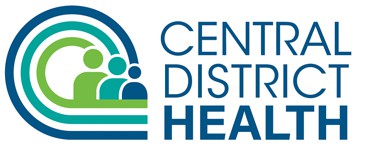What is Tuberculosis (TB)?
TB is caused by a bacterium called Mycobacterium tuberculosis. The bacteria usually causes infection in the lungs, but TB bacteria can cause infection in any part of the body such as the kidney, spine, and brain. Individuals can have a latent TB infection (LTBI) or active TB disease.
- People with latent TB infection have TB bacteria in their bodies but they are not sick and cannot spread the bacteria to others. However, they may develop TB disease in the future. They are often prescribed antibiotics to prevent them from developing TB disease.
- People with TB disease are sick from TB bacteria. They may experience fever, night sweats, loss of appetite, unintended weight loss, weakness or tiredness, chills, and other symptoms depending on where the bacterial infection is in the body. Since the bacteria usually infects the lungs, individuals will have sometimes a cough lasting more than three weeks and may also experience chest pain and shortness of breath. They are prescribed drugs that can treat TB disease.
TB bacteria spreads through the air from one person to another. Getting TB typically requires many hours of spending time near a person who is sick from TB. TB cannot be spread by touching doorknobs, tables, utensils or other surfaces. An individual with active TB disease can only spread the bacteria to others if the disease in in their lungs or throat – if the disease in other parts of the body, such as bones or kidneys, it cannot be spread to others.
Latent infections and active TB disease are treatable, and it is critical for individuals to complete a course of antibiotics if diagnosed with TB. If someone with a latent TB infection does not take antibiotics, it could progress to active TB disease, which requires longer treatment.
FAQS
Yes, TB disease can be treated by taking several drugs for six to twelve months. Latent TB can be treated by taking medication for three to nine months.
Some common symptoms of active TB include:
- A cough lasting more than three weeks
- Fever
- Heavy sweating at night
- Loss of appetite
- Unintended weight loss
- Coughing up blood
- Pain in the chest
- Chills
- Weakness or fatigue
A person with TB can only be contagious if he or she is sick and showing symptoms, such as cough, fever or night sweats. Central District Health will work with other healthcare providers to evaluate anyone who has symptoms that could be due to TB to determine whether he or she has TB and is potentially contagious.
TB diagnosis involves a skin test or blood test, followed by a chest x-ray. However, since active TB disease can occur in other parts of the body, additional testing may be required. Individuals who test positive for active TB disease will be contacted by Central District Health to help with the treatment process.
CONTACT
Can’t find the information you need? Please complete the form or give us a call.

